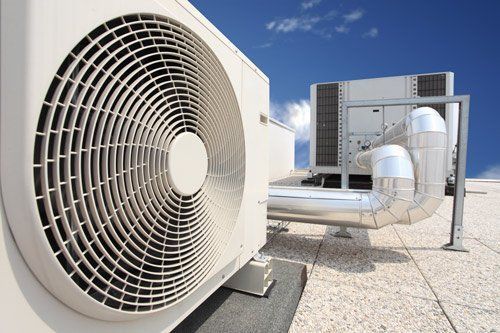Last Updated on July 27, 2023
Welcome to our article on how to bleed off an overcharged home AC. If you’ve noticed that your AC is not functioning properly or if you’ve been experiencing issues with your cooling system, it’s possible that your AC is overcharged with refrigerant. This can be a dangerous situation and it’s important to address it promptly. In this article, we will guide you through the process of identifying the signs of an overcharged AC, gathering the necessary tools and equipment, and preparing the AC system for bleeding off the excess refrigerant. We will also provide you with a step-by-step guide to safely bleed off an overcharged AC and monitor the pressure levels during the process. Additionally, we will discuss the importance of ensuring safety precautions while handling refrigerant and testing the AC system after bleeding off the excess refrigerant. So, let’s get started and learn how to effectively address this issue!
Understanding the dangers of an overcharged home AC
An overcharged home AC can pose several dangers if not addressed properly. It is important to understand these dangers to ensure the safety of your home and family. Here are some key points to consider:
- An overcharged AC can lead to increased pressure within the system, which can cause damage to the compressor and other components.
- Excessive pressure can also result in refrigerant leaks, which can be harmful to the environment and may require costly repairs.
- Overcharging the AC can cause the system to work inefficiently, leading to higher energy consumption and increased utility bills.
- In extreme cases, an overcharged AC can even lead to system failure, requiring expensive repairs or replacement.
It is crucial to address an overcharged AC promptly to avoid these risks and ensure the optimal performance of your home cooling system.
Identifying the signs of an overcharged AC
An overcharged home AC can lead to various problems and potential dangers. It is important to be able to identify the signs of an overcharged AC so that you can take the necessary steps to rectify the issue. One of the most common signs is reduced cooling efficiency. If you notice that your AC is not cooling your home as effectively as it used to, it could be a sign of overcharging. Another sign to look out for is the presence of frost or ice on the evaporator coil. This can occur when there is too much refrigerant in the system, causing the coil to freeze up. Additionally, you may notice that your AC is making strange noises or emitting a foul odor. These can also be indicators of an overcharged AC. By being able to identify these signs, you can take the appropriate measures to address the issue and prevent further damage to your AC system.
Gathering the necessary tools and equipment
Before you can begin the process of bleeding off excess refrigerant from your overcharged home AC, it is important to gather all the necessary tools and equipment. This will ensure that you have everything you need to safely and effectively complete the task.
Here are some of the tools and equipment you will need:
- Refrigerant recovery machine: This machine is used to safely remove the excess refrigerant from the AC system.
- Refrigerant recovery tank: This tank is used to store the recovered refrigerant.
- Manifold gauge set: This set of gauges is used to measure the pressure levels in the AC system.
- Refrigerant scale: This scale is used to measure the amount of refrigerant being removed from the system.
- Refrigerant hoses: These hoses are used to connect the manifold gauge set to the AC system.
- Protective gloves and goggles: These safety gear items are essential to protect yourself from any potential hazards.
By ensuring that you have all the necessary tools and equipment, you can proceed with confidence and safety in bleeding off the excess refrigerant from your overcharged home AC.
Preparing the AC system for bleeding off excess refrigerant
Before you begin the process of bleeding off excess refrigerant from your overcharged home AC, it is important to properly prepare the AC system. This will ensure that the process is carried out safely and effectively. Here are the steps to prepare the AC system:
- Turn off the power: Before you start working on the AC system, make sure to turn off the power to the unit. This will prevent any accidents or injuries.
- Locate the service valves: The service valves are usually located on the refrigerant lines near the outdoor unit. These valves control the flow of refrigerant in the system.
- Attach the pressure gauge: Attach a pressure gauge to the service valve on the low-pressure side of the AC system. This will allow you to monitor the pressure levels during the bleeding off process.
- Prepare the recovery tank: Connect the recovery tank to the service valve on the high-pressure side of the AC system. This tank will collect the excess refrigerant that is being bled off.
By following these steps, you will be able to properly prepare your AC system for bleeding off excess refrigerant. This will ensure that the process is carried out safely and effectively.
Step-by-step guide to bleeding off an overcharged AC
Once you have gathered the necessary tools and equipment and prepared the AC system for bleeding off excess refrigerant, you can follow these steps to safely and effectively remove the excess refrigerant:
- Locate the service valves: The service valves are typically located on the refrigerant lines near the outdoor unit. They may be labeled as “high side” and “low side.”
- Attach the manifold gauge set: Connect the blue hose to the low side service valve and the red hose to the high side service valve. Make sure the valves on the manifold gauge set are closed.
- Open the low side valve: Slowly open the low side valve on the manifold gauge set to allow the refrigerant to flow from the AC system into the recovery tank. Monitor the pressure gauge to ensure the pressure is decreasing.
- Monitor the pressure levels: Keep an eye on the pressure gauges to ensure the pressure is within the recommended range. If the pressure drops too quickly or becomes too low, you may need to adjust the valve or stop the process.
- Close the low side valve: Once the pressure has reached the desired level, close the low side valve on the manifold gauge set to stop the flow of refrigerant.
- Repeat the process if necessary: If the AC system is still overcharged, you may need to repeat the process until the pressure is within the recommended range.
Remember to always follow safety precautions while handling refrigerant and consult a professional if you are unsure about any step of the process.
Monitoring the pressure levels during the process
As you bleed off the excess refrigerant from your overcharged home AC, it is crucial to monitor the pressure levels throughout the process. This will help you ensure that you are removing the right amount of refrigerant and not causing any further damage to the system.
Start by attaching a pressure gauge to the low-pressure side of the AC system. This will allow you to accurately measure the pressure levels. Keep a close eye on the gauge as you slowly release the refrigerant.
If the pressure levels drop too quickly, it may indicate that you are removing too much refrigerant. On the other hand, if the pressure levels remain high even after bleeding off some refrigerant, it may indicate that there is still excess refrigerant in the system.
Remember to follow the manufacturer’s guidelines and recommendations for the ideal pressure levels for your specific AC system. If you are unsure about the correct pressure levels, it is best to consult a professional HVAC technician.
Ensuring Safety Precautions While Handling Refrigerant
When it comes to handling refrigerant, safety should always be the top priority. Refrigerants are chemicals that can be harmful if not handled properly. Therefore, it is crucial to take the necessary precautions to protect yourself and others.
First and foremost, always wear protective gear such as gloves and safety goggles. This will shield your skin and eyes from any potential contact with the refrigerant, which can cause irritation or burns. Additionally, make sure to work in a well-ventilated area to avoid inhaling any fumes.
Never attempt to release refrigerant into the atmosphere. This can have detrimental effects on the environment and is illegal in many places. Instead, use a proper recovery machine or container to collect the excess refrigerant. These devices are designed to safely handle and store refrigerants.
Be cautious when working with high-pressure systems. Always follow the manufacturer’s instructions and guidelines to prevent accidents or injuries. If you are unsure about any step of the process, consult a professional HVAC technician who can provide guidance and assistance.
By taking these safety precautions, you can ensure a safe and successful process of bleeding off excess refrigerant from your overcharged home AC system.
Testing the AC system after bleeding off the excess refrigerant
Once you have successfully bled off the excess refrigerant from your overcharged home AC, it is important to test the system to ensure that it is functioning properly. Testing the AC system will help you determine if any further adjustments or repairs are needed.
Start by turning on the AC and allowing it to run for a few minutes. Pay close attention to the temperature of the air coming out of the vents. It should be cool and refreshing, indicating that the system is working correctly.
Next, check the pressure levels of the AC system using a pressure gauge. The pressure should be within the recommended range for your specific AC unit. If the pressure is too high or too low, it may indicate a problem with the system that needs to be addressed.
Additionally, listen for any unusual noises coming from the AC unit. Strange noises could be a sign of a malfunction or a loose component that needs to be fixed.
If you notice any issues during the testing process, it is recommended to contact a professional HVAC technician for further assistance. They will be able to diagnose and repair any problems with your AC system.
Conclusion: Safely and effectively bleeding off excess refrigerant from an overcharged home AC system is crucial for maintaining its optimal performance and preventing potential damage. By understanding the dangers of an overcharged AC and identifying the signs, homeowners can take the necessary steps to rectify the issue. Gathering the appropriate tools and equipment, as well as preparing the AC system, are essential before proceeding with the bleeding off process. Following a step-by-step guide and monitoring the pressure levels throughout the process ensures a smooth and successful outcome. However, it is important to prioritize safety precautions when handling refrigerant, as it can be hazardous if mishandled. Once the excess refrigerant has been bled off, testing the AC system is necessary to ensure that it is functioning properly. By following these guidelines, homeowners can effectively address an overcharged AC and maintain a comfortable and efficient home environment.Learn how to safely bleed off excess refrigerant from an overcharged home AC system with this step-by-step guide.
About The Author

Fernánda Esteban is a food fanatic. She can't go more than a few hours without eating, and she loves trying new foods from all over the world. Her friends know that they can always count on her for a good conversation, and she's an animal lover who will never turn down an opportunity to pet a dog or cat. Fernánda also enjoys learning about random facts, and she's a social media practitioner who loves to share what she knows with others.

